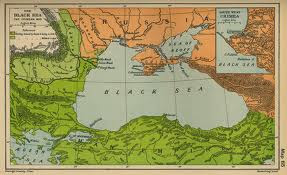Otto von
Bismarck was the Prime Minister of Prussia since 1862, and he was miserable in
his way of ruling. He didn’t take care about constitution, the parliament or
any other thing that stayed on his way. He was really ambitious and smart, and
that made him go for the expansion of Germany with allies that were later
betrayed by Bismarck himself. By the end of 1867, Prussia controlled the North
German Confederation but not the south. The South German States remained
independent mainly because of their religion, which was Catholic.
France was
having a tough time, new technological devices and engines were coming really
fast and it was the perfect opportunity for Otto von Bismarck to fight the
French. He tricked the Prussians to unify both German sides and fight against
France. Prussians had breach-loading rifles which gave them a great advantage
against the French, but then the Chassepot riffle turned the things against the
Prussians when France started using them. At the front line France had powerful
guns that would kill anyone who stepped forward, but war is not only about
guns, it’s logistic the ability that will give you the victory and that’s why
France lost. After this war Germany became unified.
After all
that had happened France suffered from a terrible economic disaster. Big factories
turned into little workshops and people suffered from hunger and poverty. The
consequences of the war left France with an uprising discontent from the
working class and the French Commune was established as government, it wasn’t
well defined and it wasn’t socialist or communist or anarchist or republic but
a great chaos. There was a lot of violence in France, all kinds of work
protests happened. Finally the commune was disabled by the remains of the
previous regime and they restored the past government.
Who
was Otto von Bismarck?
The Prime Minister of Prussia
Why was he important?
He was a very important diplomat because he unified Germany.
What did he want?
He wanted to expand Germany by unifying it and by fighting France.
How did he trick France?
He made a false telegram in which he pretended to be the King of Prussia and
supposedly declared that they will not accept the future successor for the
Spanish throne.
What was the result of the Franco-Prussian War for France and Germany?
It took the power that France had in Europe from them and gave it to Germany,
of course under Prussia
What was the role of the various guns used – the Dreyse needle gun, the Chassepot
rifle, and the mitrailleuse?
It affected drastically the advantage between countries, for example the Dreyse
was heavy and had gas problems which affect for bad the aiming. Also the rifles
gave advantage because they were faster and produced greater damage, and
mitrailleuse lasted more in combat so they had more advantage.
Why are breech-loading weapons superior to muzzle-loading weapons?
The time of reloading is faster because it has a special reload space, unlike
the muzzle-loading because you reload from the muzzle by inserting the bullet
with a tube.
What was the Paris Commune?
A brief government that ruled Paris
Why was the period of the Commune a time of great suffering?
Social and economic life was depressing. Living circumstances and there were
rumors of a civil war coming
What are some examples of the suffering?
Poverty, hunger, misery; they were in very bad circumstances
What finally happened with the Commune?
It didn’t work out and it fell on May 28, 1871.








